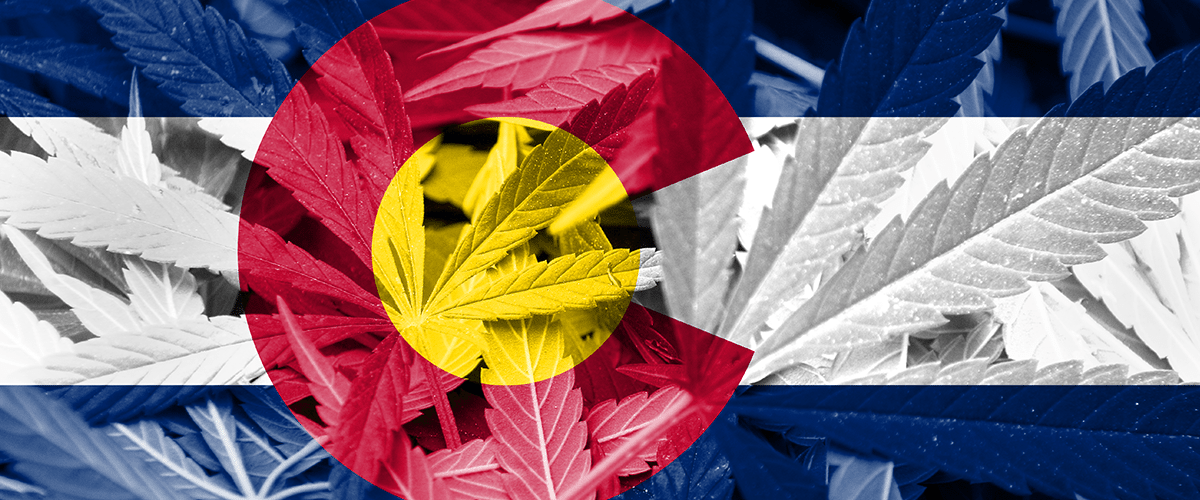[vc_row][vc_column][vc_column_text]
Colorado’s annual report monitoring the public health and environmental effects of recreational marijuana legalization found several “encouraging trends.”
The latest report examining Colorado’s marijuana-related health effects by the state’s Retail Marijuana Public Health Advisory Committee found several “encouraging trends.” The committee, made up of epidemiologists, toxicologists, psychiatrists, physicians, and public health officials, have monitored and published a report on the public-health effects of legalized marijuana, since the state implemented its recreational marijuana law in 2014.
Data from the committee’s first report, published in January 2015, was used by state officials as baseline data.
This year’s 2016 report found six “encouraging trends”:
- Legalization didn’t have any effect on past-month marijuana use among adults and adolescents, either in terms of the number of people using or the frequency of use.
- Past month marijuana use among teens in Colorado is nearly identical to the national average.
- Legalization didn’t affect marijuana use by age, gender, race, ethnicity or sexual orientation.
- Daily or near-daily marijuana use among teens is much lower than daily or near-daily alcohol or tobacco use. Also, past month marijuana use by adolescents is lower than past month alcohol use.
- Calls to poison centers due to marijuana exposure, including exposures in children ages 0 to 8 years, have decreased since 2015.
- Rate of marijuana-related visits to emergency rooms dropped 27 percent between 2014 and 2015.
- The estimated percentage of women in Colorado who used marijuana while pregnant (6 percent) is “not statistically different” from the national average.
Colorado’s Department of Public Health and Environment uses the annual reports to develop campaigns on marijuana education and adolescent prevention.
“We are doing our best to study this closely and monitor what’s going on,” Mike Van Dyke, chairman of the 14-member committee, told The Cannabist. “While maybe not apparent from this report, we are taking this evidence base that we’re developing, and we are using it to develop prevention campaigns, education campaigns. We are doing our best to implement an evidence-based policy.”[/vc_column_text][/vc_column][/vc_row][vc_row][vc_column][vc_single_image image=”17394″ img_size=”1200×250″ onclick=”custom_link” img_link_target=”_blank” link=”https://www.medicalmarijuanainc.com/report-u-s-legal-cannabis-market-growing-faster-dot-com-boom/”][/vc_column][/vc_row][vc_row][vc_column][vc_column_text]The fact that marijuana-related emergency room visits and poison control calls are down indicates that the educational and policy efforts have been effective.
“I think that speaks to a learning effect,” said Van Dyke. “The public is really learning the message, if not from us, from their own experience.”
Among the most common concern of legalization opponents are the potential effects on marijuana use by adolescents. Many believe that legalization sends the wrong message to teens and encourages use. However, studies have found that teen marijuana use either remains constant or drops following the loosening of laws. Colorado’s report reiterates this trend.
“We’ve had a pretty good history on high school use, but we didn’t start asking the questions about marijuana use – unfortunately until after legalization – for adults,” Van Dyke said.
In a statement, Marijuana Policy Project director of communications Mason Tvert argued the report’s findings showcase the numerous positive effects of legalization.
“Colorado continues to demonstrate that regulating marijuana works. It is dispelling the myth that the sky will fall if marijuana is made legal for adults. What we are actually seeing is a tightly controlled system of marijuana production and sales that is making our communities safer. We are encouraged by these trends and optimistic about the future of the state, which is setting an example for the rest of the nation. It is clear that prohibition is neither the only way nor the best way to address marijuana-related health concerns. Colorado is taking a more realistic approach, and it is experiencing real results.”
You can read the complete report, “Monitoring Health Concerns Related to Marijuana in Colorado: 2016,” on the Colorado Department of Public Health and Environment website.
Colorado is one of eight states that have passed recreational marijuana laws. Learn about the cannabis laws throughout the U.S. by visiting our education page.[/vc_column_text][/vc_column][/vc_row]






